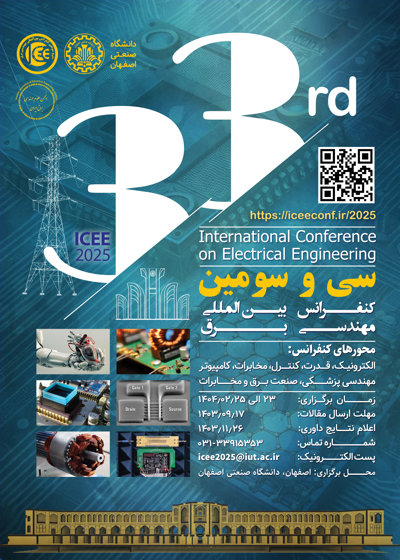0% Complete

نویسندگان :
کلمات کلیدی :
چکیده :
لیست مقالات بایگانی شده
محمد روغنی - سمانه حسینی سمنانی
Ali Rezaei - Asieh Khosravanian - Habibollah Danyali - Kamran Kazemi - Ardalan Aarabi
Abdolah Amirany - Kian Jafari - Mohammad Hossein Moaiyeri
Hossein Jafari - Mohammad Sadegh Sepasian - Fatemeh Teimori
Vida Esmaeili - Mahmood Mohassel Feghhi
Samaneh Ansari - Rana Nazifi - Mehdi Yaghoubi Arzefouni - Roya Mohajeri - Seyed Iman Mirzaei - Mehdi Fardmanesh
Meysam Azhdari - Tahereh Binazadeh - Ali Gholami
Sajad Esameili - Mohammad Amini - Amir Khorsandi - Seyed Hamid Fathi - Seyed Hossein Hosseinian - Jafar Millimonfared
سجاد قابلی ثانی - رحیم عجبی فرشباف - میثم صادقی - محمد خدایاری
Nooshin Farhangian - Mansour Nejati Jahromi - Mahdi Nouri





